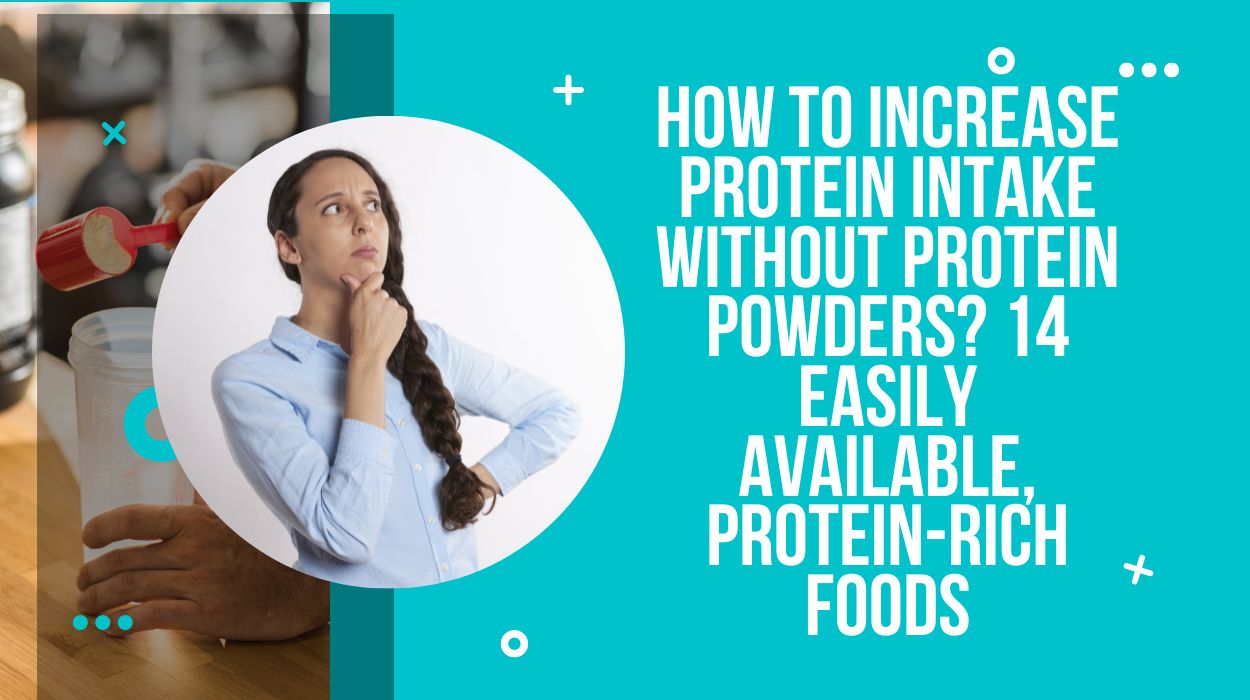Proteins are a vital nutrient for your body. A balanced diet is incomplete without proteins. It helps to increase muscles, gain or lose weight, support bone health and provide energy to the body, etc.
And when it comes to meeting the body’s protein requirements, most people consider protein powders. For example, whey and casein are known as the best protein powders among other protein powders.
However, they can be quite expensive and not affordable for everyone in the long run. Now the good news is, there are other alternatives of protein as well, and they are as beneficial as protein supplements.
In this article, we are going to tell you about the 14 best sources of protein to include in your daily diet.
14 Protein-Rich Foods To Increase Your Protein Intake Without Protein Powders
1. Eggs
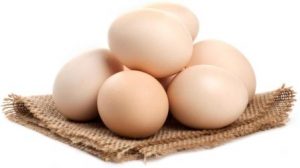
Eggs are the cheapest and easy-to-find protein-rich foods. In addition to being high in protein, they are also very low in calories.
- The protein content of one medium-sized egg has 6-8 g protein.
In addition, eggs are also rich sources of vitamins, minerals, healthy fats as well as omega 3 fatty acids and antioxidants. Eating eggs can keep you satiated and you may not want to binge on unhealthy foods.
According to the University of Illinois at Urbana-Champaign, consuming whole eggs can help bodybuilders to gain muscles. However, some people are allergic to eggs, and if you belong to that category, then you would want to switch to other sources of protein, which we have mentioned below.
2. Chicken
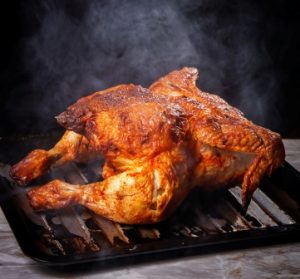
Chicken is a lean source of proteins containing vital amino acids which helps in maintaining bone mineral density, promoting healthier and stronger bones. It is versatile and easy to cook food. You can incorporate chicken into your diet in the form of salads, sandwiches, curries, and, steak, etc.
Protein content:
- 100 g of chicken breast contains 31 g protein.
- 100 g of chicken drumstick contains 18 g protein.
- 100 g of chicken thigh comprises 24-26 g protein.
3. Fish
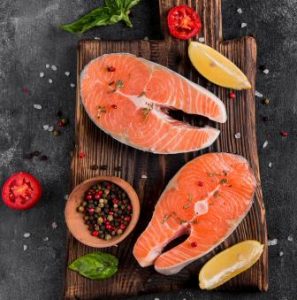
Fish is one of the richest sources of protein. Moreover, it is very low in calories, so if you want to lose weight, fish can be your go-to solution!
The benefits of fish don’t end here! Some other health benefits include vision protection, heart health, lower risk of depression, stroke, and Alzheimer’s disease, etc. Fish species like mackerel, salmon, and tuna, and sardine, etc., are the highest in protein.
Source: https://oehha.ca.gov/fish/benefits-risks
https://pubmed.ncbi.nlm.nih.gov/30238628/
Protein Content:
- 100 g Mackerel contains 17 g of protein
- 100 g Salmon contains 26 g of protein
- 100 g Tuna contains 28 g of protein
- 100 g Sardine contains about 19.8 g of protein
4. Red Meat
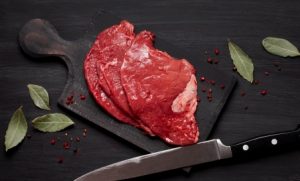
Red meat is an excellent source of protein. It also contains a good amount of iron, zinc, and other essential nutrients. It is an alternative for people who follow a low-carb diet. However, we recommend you to opt for leaner cuts of red meat as they are more beneficial to your heart health.
Red meat is loaded with the amino acid, creatine, which helps in the growth and maintenance of muscles. That’s why bodybuilders and fitness enthusiasts include red meat in their diet.
Protein Content:
- 100 g of cooked red meat contains 28-36 g protein.
- 100 g cooked lean beef has a protein content between 26 and 27 g.
5. Milk
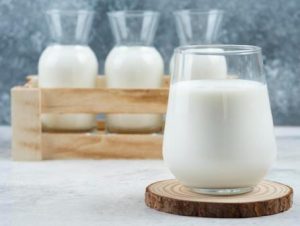
Milk has a good amount of proteins, carbs, fats, and essential nutrients like riboflavin, calcium, and phosphorus, etc. Moreover, it is rich in essential amino acids, which help in muscle building.
If you are worried about the consumption of fat, low or zero-fat milk is an option. Also, if you are lactose-intolerant or a vegetarian, you can always switch to soya milk instead of cow’s milk.
Protein Content:
- One cup of full cream milk contains 8 g of protein
- One cup of soy milk contains around 6 grams of protein
6. Greek Yogurt
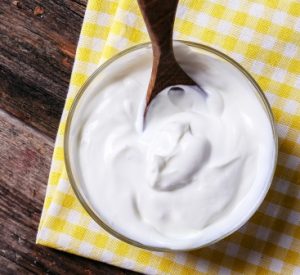
Although every type of yogurt is rich in protein, Greek yogurt steals the show. What sets Greek yogurt apart from ordinary yogurt is its creamy texture and thick consistency.
It contains twice as much protein as regular yogurt and less lactose, making it suitable for people with lactose intolerance or milk allergies.
- 100 g Greek yogurt contains 10 g of protein.
According to studies, Greek yogurt can increase muscle mass if consumed regularly. You can simply add it into smoothies, soups, sauces, desserts and, curries, etc., and enjoy its benefits!
7. Cheese
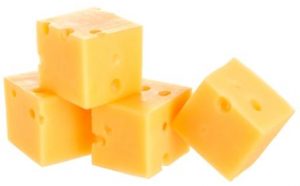
Apart from milk and yogurt, cheese is another good source of protein. It can instantly add flavor to your salads, sandwiches, pasta, and omelets, etc. There are so many types of cheese, among which parmesan, mozzarella, and cottage cheese are the highest in protein.
Protein Content:
- 100g of parmesan cheese contains around 35 g of protein.
- 100g of mozzarella cheese has 26 g of protein.
- 100g of cottage cheese contains 15 g of protein.
Apart from being one of the best sources of protein, cheese is also a rich source of calcium, zinc as well as Vitamin A and B, etc.
8. Quinoa
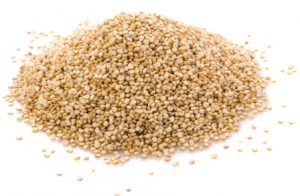
Quinoa belongs to the category of whole grains and is considered a superfood by many. It’s a high-quality and complete source of protein as it consists of all the vital amino acids.
Protein Content:
- 100 g of quinoa contains 20 g protein.
- 1 cup of cooked quinoa contains 8 proteins.
Quinoa is best suitable for vegans, people who have gluten/wheat allergies, as well as for those who want to reduce weight. It is loaded with fiber and protein and keeps you satiated.
Moreover, it is also rich in vitamin B, iron, calcium, magnesium, and antioxidants, making it one of the best health foods.
Quinoa has a crunchy texture and a nutty flavor. You can add it into energy bars, smoothies, bread, stews, and, salads, etc.
9. Oats
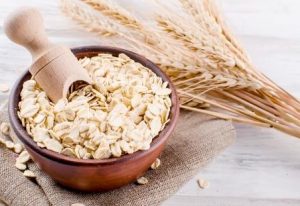
Oats have gained much popularity as a breakfast cereal (oatmeal). They are also commonly added to energy bars, cookies, bread, muffins, and smoothies, etc. Oats are one of the most nutritious foods on this planet. They are very rich in fiber and proteins.
Protein Content:
- 100 g oats contain 2.4 of g protein.
- 1 cup of cooked oats contains around 6 g of protein.
Moreover, oats are loaded with antioxidants, minerals, vitamins, and other essential nutrients. They help in easing constipation, losing weight as well as lowering blood sugar levels and cholesterol, etc. Also, if you have a gluten or wheat allergy, then oats can be a great replacement for you.
10. Soya Chunks
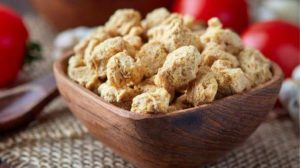
Soya chunks are the by-products left after soybean oil extraction. Dried soya chunks have a rough texture but as soon as you soak them in water, they become soft and spongy.
Nowadays, soy chunks have become very popular foods among health-conscious people as well as vegetarians. They are called ‘vegetarian’s meat’ since their protein content is similar to that of most non-vegetarian foods. Soya chunks are full of proteins, omega 3 fatty acids, carbohydrates, fiber, calcium and, iron, etc.
Protein Content:
- 100 g of uncooked soya chunks contains about 52 g protein.
- 100 g of boiled soya chunks contains 17 g protein.
The benefits of soya chunks don’t end here. They also aid in building muscles, boosting metabolism, and losing weight as well as promoting the health of hair, skin and, bones, etc.
11. Nuts
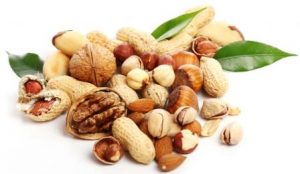
Nuts make a tasty and high-protein snack. They’re easy to eat, versatile, and a good source of plant protein, especially for vegetarian people.
Eating just a handful of nuts can help you to meet your daily protein requirements. They help to build muscles, improve bone and skin health, as well as keep you satiated and energetic thorough out the day.
While all nuts have a good amount of protein, some of them top the chart. Such as almonds, cashew nuts, walnuts, and pistachios, etc are loaded with protein. Moreover, nuts are also rich sources of fiber, antioxidants, omega-3 fatty acids, amino acids, vitamins, and minerals, etc.
Protein content:
- 1 ounce (28 g) of almonds contains about 6 g protein.
- 1 ounce (28 g) of cashew nuts contains 5 g of protein.
- 1 ounce (28 g) of walnuts contains about 4.3 g of protein.
- 1 ounce (28 g) of pistachios contains 5 g of protein.
12. Lentils
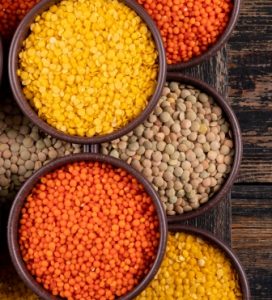
Lentils belong to the category of legumes. Although they are small in size, they are highly nutritious. They are usually categorized based on their colour. Such as red lentil, yellow lentil, green lentil, black lentil, and, white lentil, etc.
Lentils are known to be one of the best sources of plant proteins. They are ideal for vegetarians as well as for people who wish to lose weight.
When it comes to protein, lentils have a very high protein content. They comprise about 25% protein, which makes them a good meat substitute. A half-cup of cooked lentils contains a whopping 12-14 g of protein.
In addition, lentils are also a great source of iron, which most vegetarian diets lack. Not just these, lentils also contain a high amount of fiber, magnesium, potassium, folate, copper, and, manganese, etc.
13. Peanut Butter
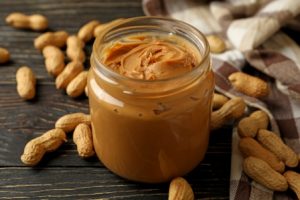
As its name suggests, peanut butter is a paste made from ground peanuts. It has a thick and creamy consistency. Usually, extra ingredients are added to peanut butter jars to enhance their taste, texture, and color, etc. While most people consume peanut butter to lose or put on weight and build muscles, we advise you to consume it within limits as it is high in calories.
Peanut butter is a very good source of protein:
- 2 tsp of peanut butter contains 8 g of protein.
- 1 cup of peanut butter contains 65 g of protein.
Apart from being highly rich in protein, peanut butter is also loaded with zinc, phosphorus, magnesium, niacin, as well as other important vitamins and minerals. You can add peanut butter into your bread, muffins, smoothies, curries, and, milkshakes, etc.
14. Seeds
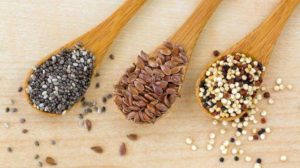
Seeds are good sources of plant proteins. While they are tiny in size, their nutritional value can’t be ignored. Flaxseeds, chia seeds, pumpkin seeds, etc., are highest in protein and are packed with fiber, unsaturated fats, antioxidants, vitamins and, minerals, etc.
Seeds can be easily incorporated into so many recipes. You can add them to your smoothies, protein shakes, salads, cereals and, bread, etc., and enjoy their benefits.
Protein Content:
- 1 tsp of flaxseeds contains 3 g of protein.
- 1 tsp of chia seeds contains 4.7 g of protein.
- 1 tsp of pumpkin seeds contains 5 g of protein.
FAQs
1. How much protein do I require daily?
It is recommended that adults must at least consume 0.8 g of protein per kg of their body weight every day.
2. Which vegetables are high in protein?
Vegetables like broccoli, cabbage, and spinach are considered very good sources of protein. In fact, broccoli contains more protein than steak while the protein content in spinach is similar to that of fish.
3. What are the signs of too much protein in the body?
Too high levels of protein in the body can be harmful. It can trigger the following symptoms: flatulence, indigestion, bloating, nausea, kidney problems, dehydration, and fatigue, among others.
Conclusion
Now that you know some of the easily available alternatives of protein supplements, start incorporating them into your diet to fulfill your protein requirements right away!
You no longer have to rely on protein powders alone. Without protein, your diet will be incomplete! However, make sure that you are not consuming excessive amounts of protein either.
We hope you found this information beneficial. If you still have any questions, please don’t hesitate in reaching out to us in the comment section!

